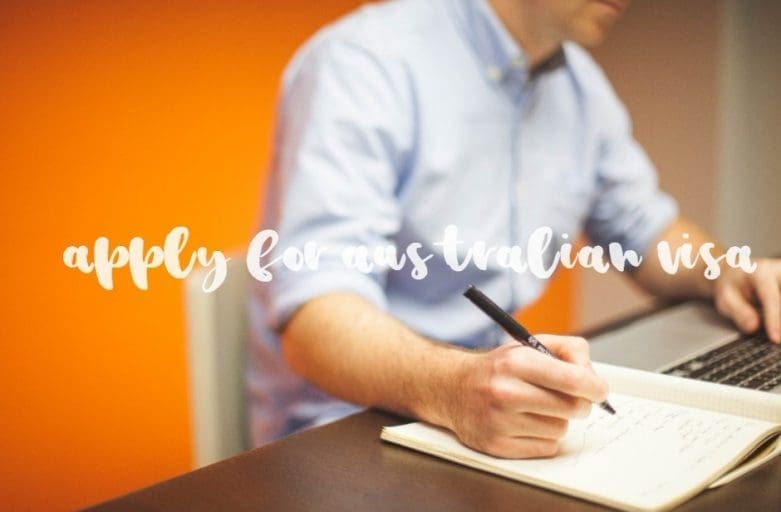Apply for Australian visa – how to make it right to avoid disappointment.
8 useful tips from industry insider for successful Australian visa applications
More and more people from all over the world are queuing up to apply for Australian visas, more noticeably at this time of the year when people from the north scamper for a place to stay in the tropics to avoid the brutal cold of the freezing winter. We are not talking of hundreds of applicants here but hundreds of thousands.
And if you are entertaining the possibility of traveling to the country one of these days, include yourself in the ever-growing census.
Many are lucky enough to apply and secure Australian visas of their choice, but a good number also suffer the misfortune of being refused. No, we are not talking about dubious and fraudulent applications; we are talking about simple mistakes and misunderstandings that could have been avoided given sufficient advice and assistance.
Compounding the problem is the fact that the Department of Home Affairs, the government agency tasked with the screening of visa applications, is no longer as considerate as before, especially after the 9/11 aftermath. And the reasons are obvious: The government sees to it that what happened to the United States does not happen here. In fact, many industry insiders say they could no longer interact with the personnel of the department the way they could do pre-9/11 era.
Indeed, times are a-changing, so goes a popular song. What was applicable before no longer holds true today.
Against this backdrop, it is more important and urgent that you know the tips to make your application for an Australian visa successful. Needless to say, getting your application turned down by the department is costly. Yes, the potential amount that’s certain to go down the drain is nothing to sneeze at. Add to that the time and effort that you put in at gathering the required documents, organizing such documents, talking to various resource persons who might be of help to you, submission of the application, responding to queries from DIBP, etc.
Complying with the required documents is just a small fraction of the process. You need the help of someone or some organization that knows the process – what the DIBP wants and how the system operates.
We know, we know: You don’t want the mistakes of other applicants to befall you. And who would? It is for this reason that we are writing this article. The pointers that will follow come straight from the horse’s mouth, so you better sit up and take notice.
Give due credence to evidence
Nowhere is the significance of proof or evidence more prominent and critical than when you apply for Australian visa. And nowhere is it more strongly required than in the application of an Australian visa. Like we mentioned earlier, after the occurrence of 9/11, the DIBP became more stringent in the issuance of visas.
And if you are looking at securing a family, business or work visa, be prepared for a more rigorous procedure at substantiating those evidence. Visa types of such nature require solid proofs.
It goes without saying that your relationships with your dependents or maybe with your sponsor need to be established, your qualifications, as well as your employment records, require validation and your assets need to be demonstrated that they are truly yours. In fact, everything you declare needs to be supported by evidence.
Not only that – your own word holds less water than the information provided by other sources, especially third-party ones. It’s like saying some sources of proofs are more dependable and honored than others.
A few classic examples of these are your bank records, income tax returns and pay slips from your company if you are working. And if you applied for a skilled visa and have yet to receive the required certification, you ought to provide proof that you have applied for it such as the receipts and dates of application.
Between a government-issued document and a privately issued, the former carries more significance than the latter, for obvious reasons.
If you are aiming for a business visa, you need to prove that you are wealthy. Being wealthy here means that your money should be under your name and not in some trust. This is where some applicants run into trouble sometimes, especially if they are maintaining complex trust setups and complicated company arrangements. This is really worth paying attention to.
As regards partner visa, the DIBP demands proof of lasting and genuine relationship, for reasons you and us very well know. Joint bank accounts can help establish this relationship as well as detailed and accurate accounts from friends, family, and relatives.
Follow us on facebook if you like it here, so you’ll be first to know about updates on this page.
In this age of social media, your posts on Facebook, Instagram, and other sites may likewise serve as an avenue to demonstrate the genuineness of your relationship with your partner. Some industry experts go as far as recommending that you update your social media accounts often: load them with messages, photos, videos and what have you. By so doing, you are sending a strong signal to the DIBP officer reviewing your application that you are serious about the relationship and that you care about the visa you’re applying for.
Check the consistency of your public records and social media posts
Not only do you need to load your social media accounts with updated posts, you need to see to it also that your entries in your accounts correspond with the information you have in other sources such as your records from your schools, the companies you worked for or the organizations you used to be affiliated with. Even the information you provided in your previous visa applications is matched against other available information about you. Please note that your case officer will go to great lengths to check on them.
Issues that usually crop in this regard involve religious beliefs, gender orientation, race, cultural background and other similar concerns. In an attempt of the applicants not to be bashed or trolled on the web, they would hide their true identity. For instance, they would claim to be Christians when, in reality, they are Muslims. Instead of admitting they are gay, they would say they are straight men or women. This may not necessarily result in the outright refusal of your application, but this can create unnecessary complications in the process, which sometimes cost you pointless expenses, most especially in legal fees.
Nail that detail
Paying attention to details may sound simplistic to you, but this is still worth mentioning here. In fact, this constitutes one of the main reasons your visa applications either get delayed or turned down altogether. Mistakes on dates, inconsistency on the information you provide versus those coming from other sources (as we have just mentioned a while ago), inaccuracies on your data, not following instructions, not abiding by the process, etc. all contribute to adverse outcomes.
Apart from that, Australia offers many subclasses of visa, some types are quite close to the others in terms of categorization. Not only that — each visa type has specific rules and conditions under it. In short, you need to make sure that you choose the right visa. For instance, if your intention in coming here is to stay permanently, you cannot use a tourist visa. Obviously, the last thing you need to do is to breach the conditions of your visa. That would have dire consequences on your stay here as well as the status of your other visa applications in Australia in the future.
Indeed, if you are not careful in choosing which type of visa fits your intentions, qualifications and supporting documents, it spells trouble. Chances are that your visa may be canceled or that you may be barred from entering the country. Hence, we cannot emphasize better the importance of having a nose for detail.
It’s not only you who can be guilty of such infraction, so is your nominating employer or sponsor.
Honesty is the best policy
This may be cliché but nothing beats honesty especially when it comes to the application of a visa. The advice of most – if not all — industry experts is: Be honest. Period. Even if some facts about your life involve criminal convictions before, you need to disclose them.
The consequences of those found to be lying can be disastrous. Sometimes, it can mean an imposition of a ban for you from future visa applications depending on the severity of your case.
Again, in this age of rapid technological and computer advancement, it’s not wise to hide unpleasant information or personal events and incidents about yourself even if such things had occurred several years ago. The officers at the department of immigration have a way of finding them out. We need not tell you that you are up against the Australian government. And who said the Australian government is an idiot?
Therefore, you cannot take chances nor take things for granted. Remember: providing spurious documents is a sure way to earn a quick, well-deserved refusal.
Accuracy is another important policy
Another everyday rule that’s often overlooked and infringed on is accuracy. This is related to the earlier tips on paying attention to details and on being consistent with your public records and social media entries. But this is worth mentioning here because of the frequency that it is being disregarded.
How many applications have hit a snag because of minor and innocent mistakes? We lose count. It’s a shame because these could have been avoided if the applicant is careful and vigilant. As some industry insiders love to say, you can’t just settle for 99% accuracy. You need to make it 100%. Yes, check each and every detail of the application. And this is a non-negotiable imperative.
So vital is the need for correctness that some immigration agencies require their clients to hand over their smartphones and personal computers to them so that their staff can assure that no inaccuracies can get through the documents they would submit to the department.
Be neat and orderly
When it comes to submission of documents, especially if there’s a ton of them, neatness and orderliness come second to none. There’s nothing worse than submitting sets of documents in all sorts of arrangements and classifications. Put yourself in the shoes of the department assessor who will review your application and see how you’d feel.
If there are documents that need to be arranged chronologically or certain elements in them need highlighting, or entries that require translation or digital files on your email and social media posts that need downloading or printing, by all means, do them. Not only will your life become easier, it makes the life of your case officer easier, too. On top of that, it helps you with record keeping and locating documents, especially in cases where you are required to resubmit certain documents.
Best of all, it helps your application move faster and easier.
One more important thing: Keep a record of the documents you submit. This can help in monitoring all your submissions as well as in resolving disputes should they arise.
Follow schedules, deadlines, and instructions
You cannot just submit your requirements at any time you want. Owing to the volume of work that the DIBP is processing every single day, the department can be unbending on their rules and timetable.
One classic example that comes to mind is the requirement on passing an English test. The result of this test needs to be submitted in the first part of the application. If you do it otherwise, you may find yourself in a tight fix. Even if you hurdle the English test with excellent scores, your application can still be turned down for not following instructions on the order of submission.
You may not believe it but missing a deadline even by just a day can also ruin an entire application.
Hire the services of a migration agency
Do you find the task of obtaining a visa daunting? We bet that you do. It really is daunting! It exacts from you much of your time, effort and resources.
Fortunately, there’s a way for you to free yourself from all of these hassles: Find a dependable migration agency and hire their services.
Migration agents provide you with expert advice as to which visa to apply for based on your needs and qualifications, assist you in the preparation of the required documents and evidence, help you in lodging your application and make the needed follow-ups at the department. They know the ins and outs at the DIBP, so their help is quite valuable.
No less than the Department of Immigration and Border Protection acknowledges the important role of migration agents in making the whole process faster, easier and smoother.
But beware: Not all migration agencies are created equal. First off, there are registered agents as there are unregistered ones. The latter have been known to defraud clients like you.
Needless to say, choose the one that’s registered. The DIBP maintains a list of registered migration agents on their site. Hence, you can always check if an agent is officially registered online, and, should you decide to avail of their services, ask for their registration number.
DIBP requires registered migration agents to abide by a code of conduct as well as perform with competence and professionalism.
Speaking of a registered and highly regarded veteran migration agency in Australia, Nowak Migration ranks high on the list of migration agencies here. Our company can very well provide you with whatever assistance that you may need. In fact, we can take care of everything that you need if you don’t have time to lift a finger on your application.
If, for instance, you intend to undertake business in the country, here are some of the services that we can offer you:
- We can do research on a location of your choice for potential business and investment ventures.
- We will assist you from the submission of your expression of interest (EOI) to following up the concerned department at DIBP until the release of the invitation for visa lodgement.
- We will coordinate with the state or territory government of your choice so that you will get the coveted nomination from them.
- We liaise with migration and business lawyers if you need legal help.
- For your bookkeeping and accounting requirements, we closely work with topnotch accountants and experienced business brokers.
If you have needs that are not mentioned here, please let us know and we will provide them to you. You’re right: If you choose Nowak Migration, there’s nothing more you could ask for. Our company is a veritable one-stop shop for everything involving Australian visa and migration.
So what are you waiting for? Call us now at (07) 3668 0658. If not, send us a message through email or via our Facebook page.
You can either hire us now or book us for consultations.
Before we forget, please share with us your opinion on our topic in the comments box below.



